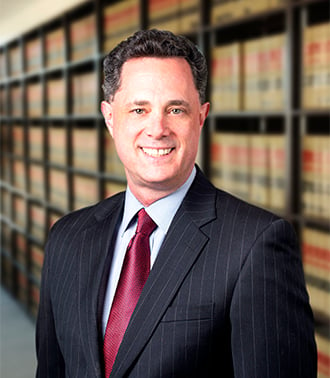FTC Releases Final Rule Prohibiting Non-Competes
On April 23, 2024, the Federal Trade Commission (FTC) released its final rule (the Final Rule) which generally bans all non-competition clauses with workers (including employees and independent contractors) as unfair methods of competition, with exceptions for bona fide sale of business non-competes and for non-competes entered into with “senior executives” prior to the effective date of the Final Rule, which will be 120 days after the date of publication in the Federal Register. The Final Rule’s prohibitions on non-competes do not apply where a cause of action related to a non-compete clause accrued prior to the effective date of the Final Rule. The Final Rule was issued after a review and comment period of the proposed rule, issued January 5, 2023 (the Proposed Rule), and was approved by a vote of 3-2 by the FTC. This Advisory summarizes the key takeaways from the Final Rule. Several challenges to the rule are pending and others may be forthcoming, including by the U.S. Chamber of Commerce, and it is uncertain whether, and if so to what degree, those challenges will be successful.
General Rule as Released
The Final Rule would generally prohibit employers from (1) entering into or attempting to enter into a non-compete clause, (2) enforcing or attempting to enforce a non-compete clause, or (3) representing that a worker is subject to a non-compete clause.1 Because the Final Rule does not prohibit enforcement of non-competes where a cause of action related to the non-compete accrued prior to the effective date of the Final Rule, pending litigation is not affected.2
The term “non-compete clause” refers to a term or condition of employment that prohibits a worker from, penalizes a worker for, or functions to prevent a worker from (1) seeking or accepting work in the United States with a different person where such work would begin after the conclusion of the employment or (2) operating a business in the United States after the conclusion of the employment.3 A non-compete clause includes provisions contained in both contractual terms and employee handbooks, whether written or oral. The FTC states in the preamble that this Final Rule does not categorically prohibit other types of restrictive covenants, such as non-disclosure agreements or non-solicitation agreements, which do not by their terms prohibit a worker or penalize a worker for seeking or accepting other work or starting a business after they leave that job. Non-solicitation agreements can satisfy the definition of a non-compete clause where they function to prevent a worker from seeking or accepting other work or starting a business after their employment ends, which is a fact-specific inquiry. Although the FTC does not define which types of non-solicit agreements prevent a worker from seeking other work or starting a business after their employment ends, non-solicit agreements prohibiting solicitation of employees appear to be unaffected.4
Existing Agreements for Senior Executives
The Final Rule includes a “grandfather” rule for “senior executives” which provides that it is not unfair competition to enforce or attempt to enforce a non-compete clause entered into before the effective date of the Final Rule, or to represent that the senior executive is subject to a non-compete clause entered into before the effective date of the Final Rule.5 For this purpose, a senior executive is a worker who was in a policy-making position and earned total compensation of at least $151,164 in the preceding year or year before termination (with specific rules for annualizing partial years).6 A policy-making position means an entity’s president, CEO or equivalent, or other officer of a business or natural person who has final authority to make policy decisions that control significant aspects of a business entity or common enterprise (which does not include authority limited to advising or exerting influence over policy decisions or having authority to make policy decisions for only a subsidiary or affiliate of a common enterprise). If an officer of a subsidiary or affiliate has policy-authority for the common enterprise, and not just a subsidiary or affiliate of an entity that is part of the common enterprise, then this person has policy-making authority for the purposes of these rules.
Sales-Based Noncompete Exception
The Final Rule contains an exception for bona fide sale of business non-competes.7 Under the Final Rule, a non-compete clause may be entered into by a person pursuant to a bona fide sale of a business entity, or the person’s ownership in a business entity, or all or substantially all of a business entity’s operating assets. The Final Rule eliminates the 25% ownership requirement which had been included in the Proposed Rule.
Notice Requirement for Existing Agreements
The Proposed Rule would have required employers to rescind all non-compliant existing non-compete clauses. The Final Rule does not include this requirement. Instead, workers with existing non-compete clauses that would be prohibited under the Final Rule must be provided with clear and conspicuous notice by the effective date that the worker’s non-compete clause will not be, and cannot legally be, enforced against the worker.8 Model language for a safe harbor employee notice is provided in the Final Rules, as well as requirements regarding how the notices must be distributed to workers.
Clarification for Franchisee-Franchisor Relationships
The Final Rule clarifies that a “worker” with whom the rule restricts or bans non-compete agreements does not include a franchisee in the context of a franchisee-franchisor relationship.9 However, the Final Rule applies to non-competes with a person who works for a franchisee or franchisor.
Effective Date and Employers Covered
The Final Rule becomes effective 120 days after the date the Final Rule is published.10
Because the Final Rule defines non-competes as an unfair method of competition under the FTC Act, it applies only to companies over which the FTC has jurisdiction. The FTC lacks jurisdiction over banks, savings and loan associations, credit unions, air carriers, common carriers, and firms covered by the Packers & Stockyards Act, as well as nonprofits except nonprofits whose members are for-profit companies (like trade associations), and employees of such entities are therefore not covered by the Final Rule.
There have already been several challenges to the rule, including by the Chamber of Commerce, on ground that the FTC lacks statutory authority under the FTC Act to issue rules defining unfair methods of competition at all (because the statutory grant of such rulemaking authority is at best ambiguous), as well as that the FTC has no authority to impose a nationwide ban on non-competes absent clear congressional authority under the “major questions doctrine,” even if it otherwise has some authority to engage in rulemaking on unfair methods of competition.
© Arnold & Porter Kaye Scholer LLP 2024 All Rights Reserved. This Advisory is intended to be a general summary of the law and does not constitute legal advice. You should consult with counsel to determine applicable legal requirements in a specific fact situation.
-
-
-
-
The Final Rule states that: “non-solicitation agreements can satisfy the definition of non-compete clause in § 910.1 where they function to prevent a worker from seeking or accepting other work or starting a business after their employment ends. Whether a non-solicitation agreement — or a no-hire agreement or a no-business agreement, both of which were referenced by commenters, as discussed previously — meets this threshold is a fact-specific inquiry. The Commission further notes that — like all the restrictive employment agreements described in this Part III.D — non-solicitation agreements, no-hire, and no-business agreements are subject to section 5’s prohibition of unfair methods of competition, irrespective of whether they are covered by the final rule.” Notably, the non-solicitation agreements referenced by the commenters that the FTC was responding to were non-solicitation of customer agreements. We are not aware of many circumstances — nor did the FTC give any examples — of when a non-solicit of employees can function in this fashion so as to be unenforceable.
-
-
-
-
-
-














